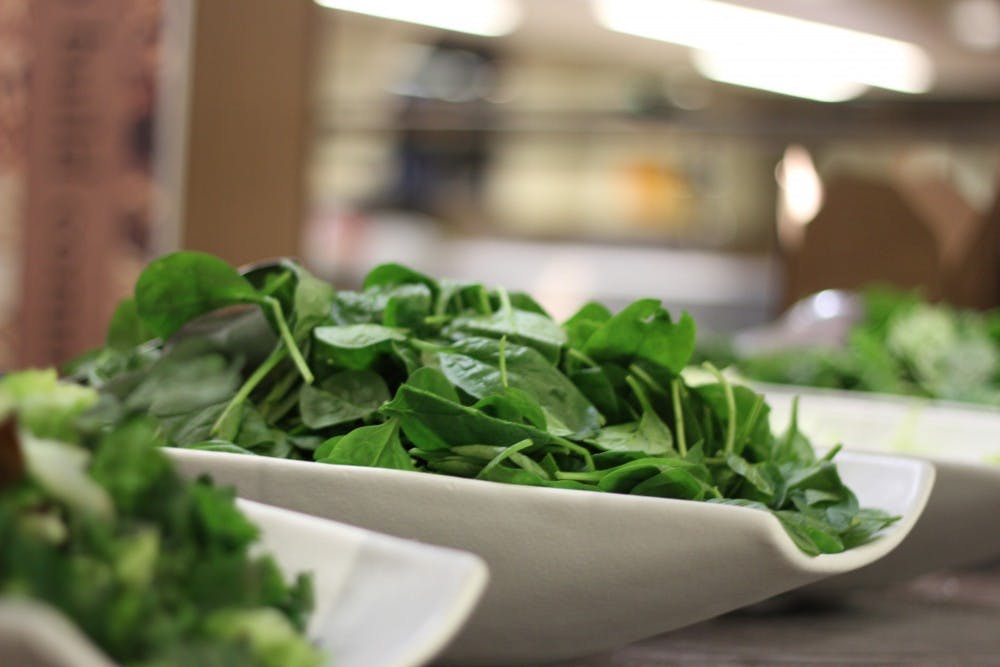by Cheyenne Schoen |
Kimberly Mueller was surprised last Thursday when what she’d thought was a mushroom in her salad from The Commons turned out to be a slug. But it was more than a surprise. It was a health code violation.
Pests in on-campus food is a rare occurrence, but one not unique to Mueller’s experience. Bon Appetit general manager Kirk Mustain said the issue is a risk inherent in providing organic produce.
“It’s organic produce, and that’s what happens when you don’t use pesticides,” Mustain said. “It’s unfortunate, but it’s bound to happen in organic produce sometimes.”
Much of Bon Appetit’s produce is grown by farms that are within 150 miles of The Commons and produce served at the salad bar is certified organic.
According to inspections supervisor for Multnomah County, Jeffrey Martin, pests in food from restaurants is a health code violation.
The state of Oregon’s food sanitation rules Sec 6-501.111 states that incoming shipments of food are to be “routinely inspected and maintained free of pests.” Food that is certified organic is not exempt from these standards. Martin suggested that Bon Appetit employees be reminded of the protocol for inspecting incoming shipments and washing procedures.
“They still need to go through their procedures of prepping the food, washing it off thoroughly before they serve it,” Martin said. “Bugs do happen, but they want to make sure they remove anything before they serve it.”
Mustain explained that all produce gets washed twice at a “produce wash sink station” and rinsed out before being prepared to be served at individual stations. Between 300 and 400 pounds of produce is cleaned at a time using this process, which Mustain said occurs daily.
There is a team of five permanent Bon Appetit staff members in charge of washing produce.
“A slug or a worm may hide on the underside of the leaf, and after we’ve washed out all the dirt and pests, there might be one that still clings on there,” Mustain said. “For the 6,000 meals a day that we’re serving out of the operation, 1,800 of those are salads. So I know it seems like it’s a lot and I don’t mean to discount anyone’s feelings toward it, but we’re doing what we’re required to do and we’re just trying to provide safe food for everybody.”
According to public records from the Multnomah County Health Department, The Commons passed its last inspection with a perfect score of 100 on April 29, 2015. The Pilot House passed on the same date with a score of 97. Prior inspections also turned out near-perfect numbers.
UP’s on-campus food is also subject to a third-party inspection by EcoSure Food Safety Solutions twice a year, which Mustain said is more stringent than the county inspection. According to Mustain, Bon Appetit “scored green” on these inspections as well.
If a pest or any other foreign object is found in the food, Martin said the incident should be reported to Bon Appetit immediately so that all contaminated food can be disposed of.
When Mueller discovered the slug, she did not report it but said she plans to be cautious with on-campus food in the future.
“It was nasty,” Mueller said.
While many would be grossed out by finding a pest in their food, senior social work major Paul Steiner thinks that students should be thankful to have fresh, organic produce at school.
“It’s something that comes with providing organic produce, and I think it’d be a lot better to find a bug in food rather than a piece of plastic or an inorganic material. That’d be a little more serious of an issue,” Steiner said.
Steiner believes that pests in the food are all a part of its natural process, but he said that food could be inspected more closely during its preparation.
“Maybe there needs to be a little more watching, cleaning, paying attention to the food that’s coming in,” Steiner said. “That would be a much better alternative than switching to produce with pesticides.”
Cheyenne Schoen is a reporter at The Beacon. She can be reached at schoen17@up.edu.








